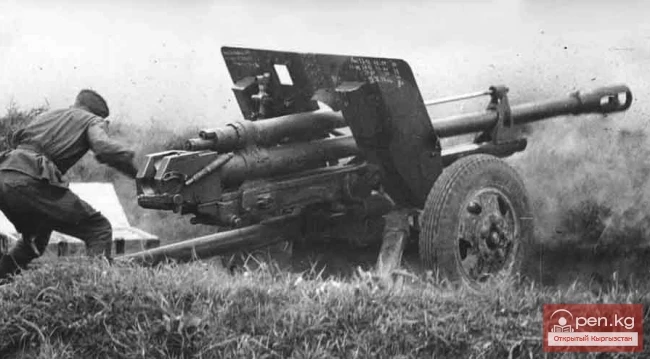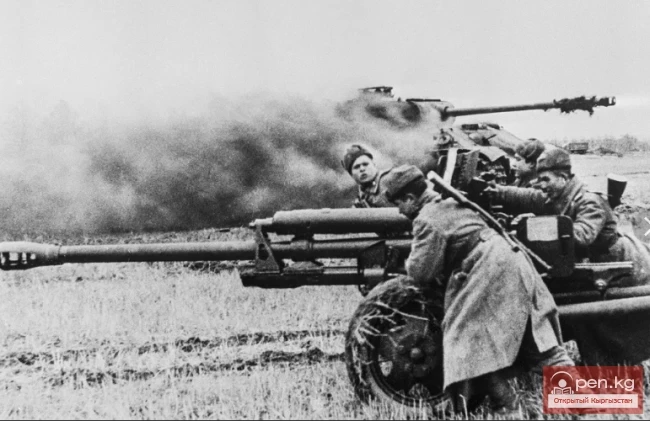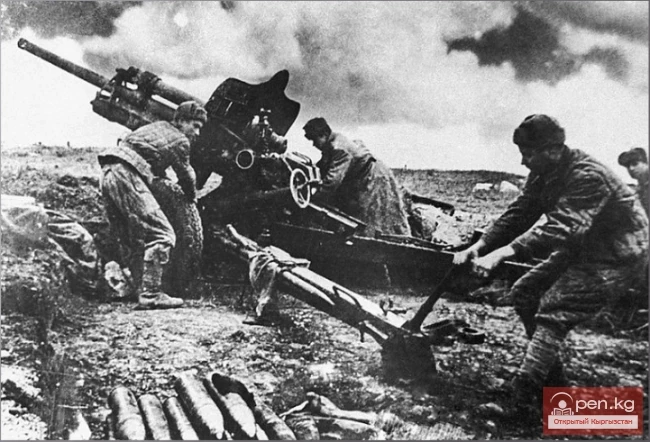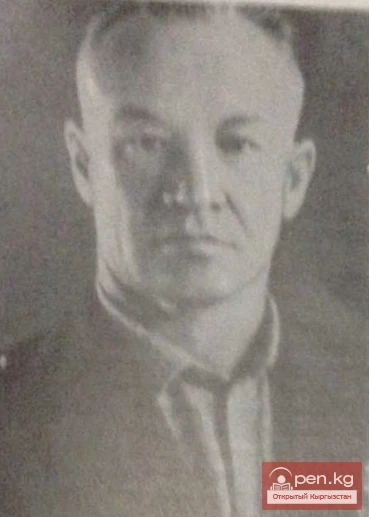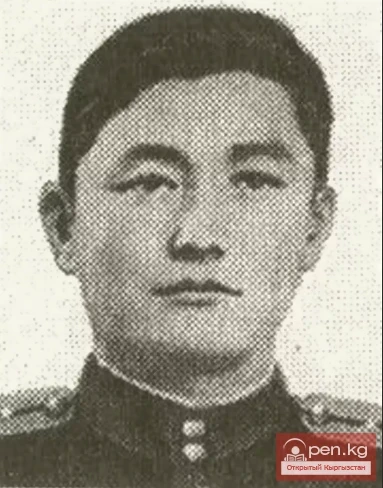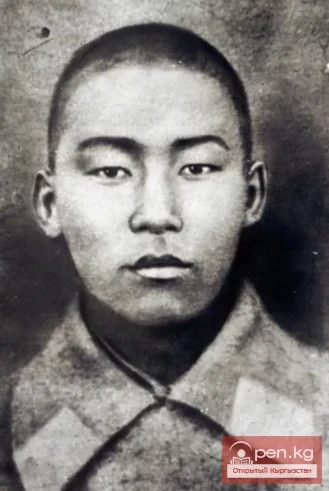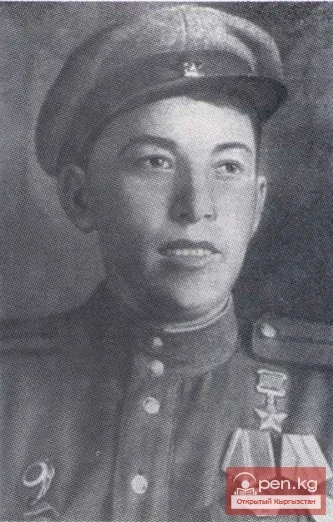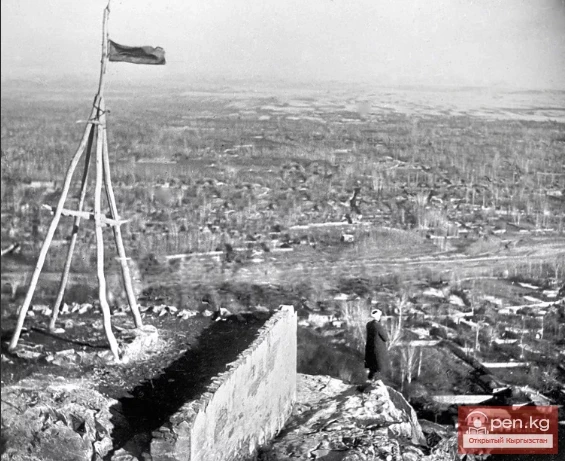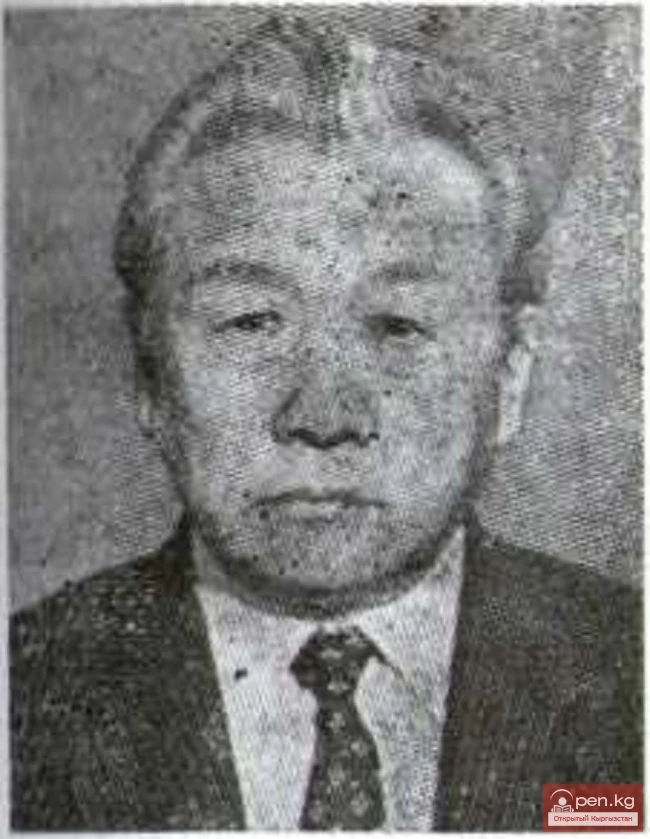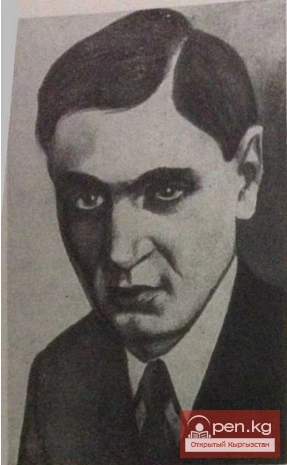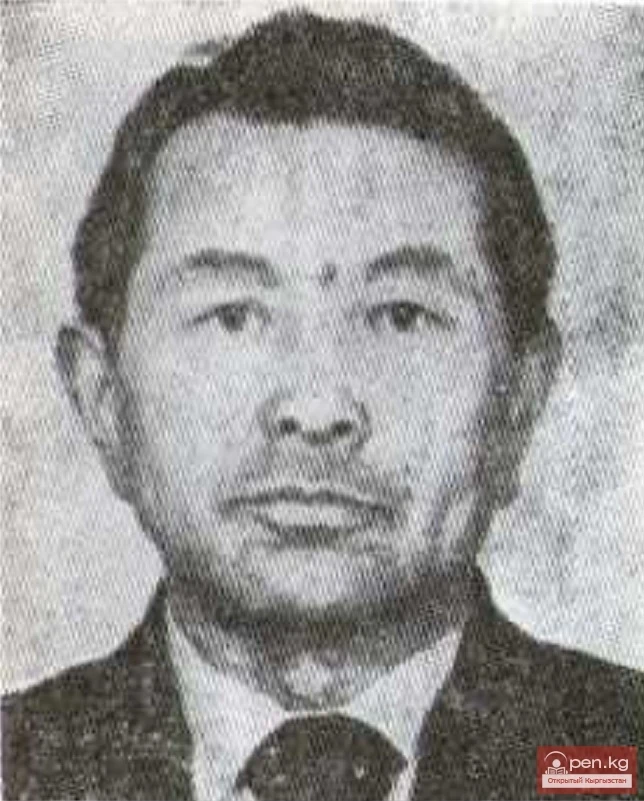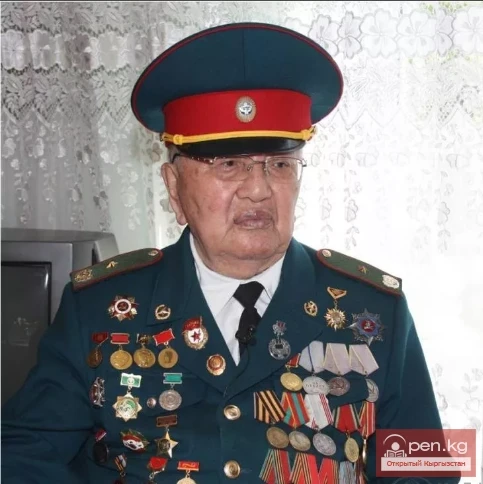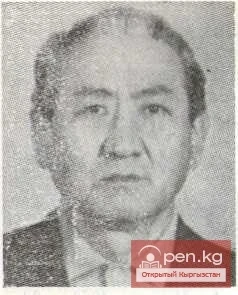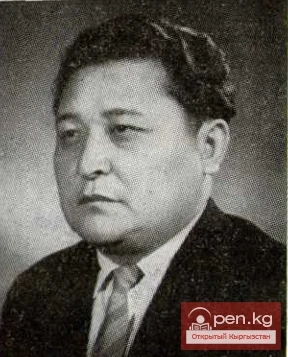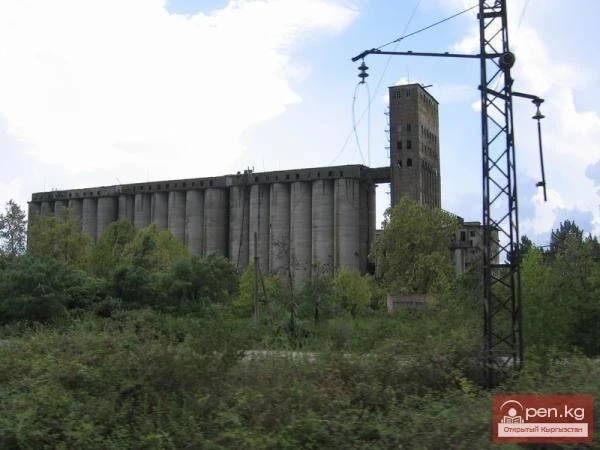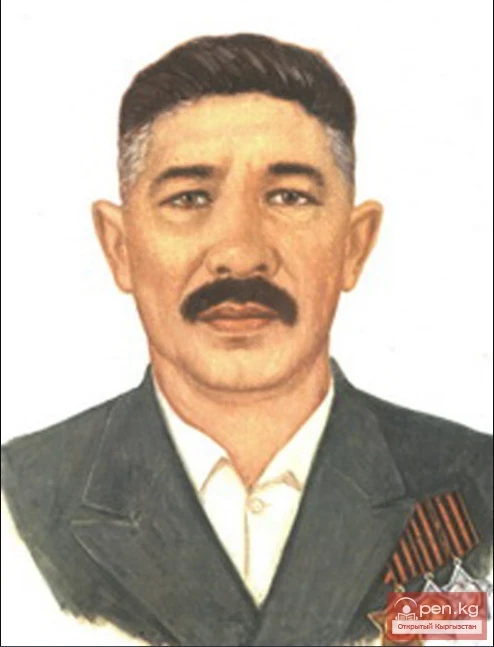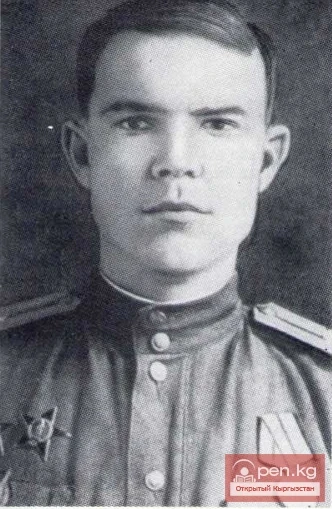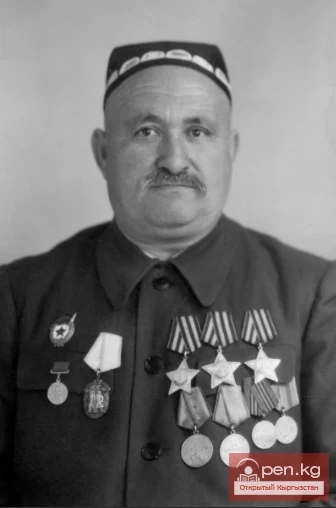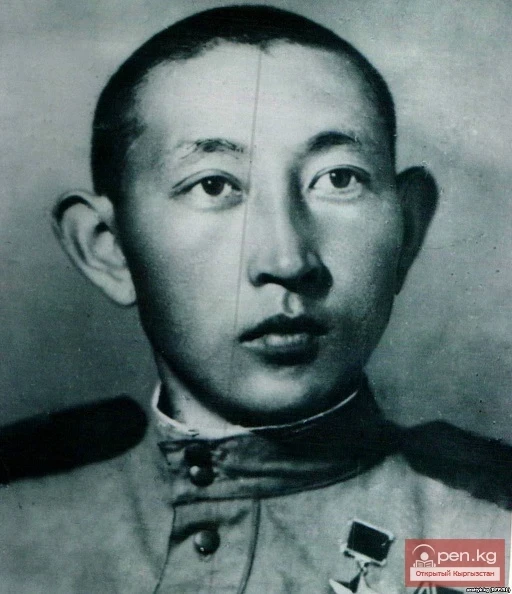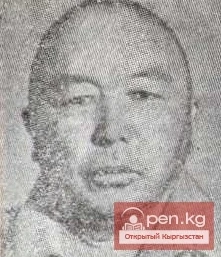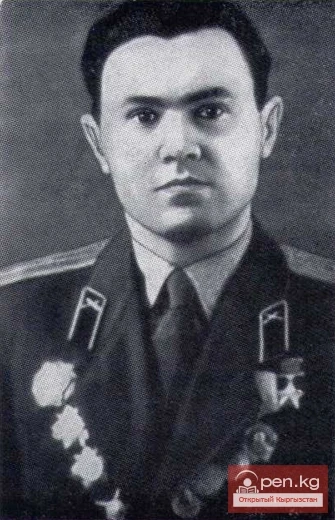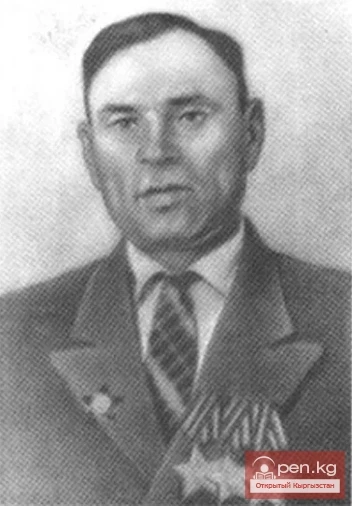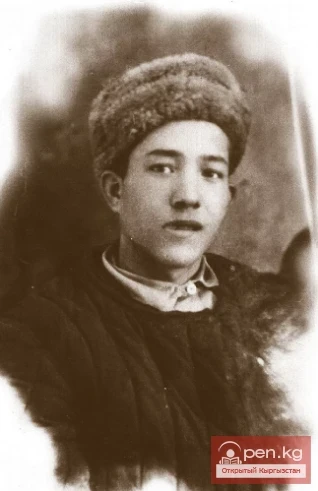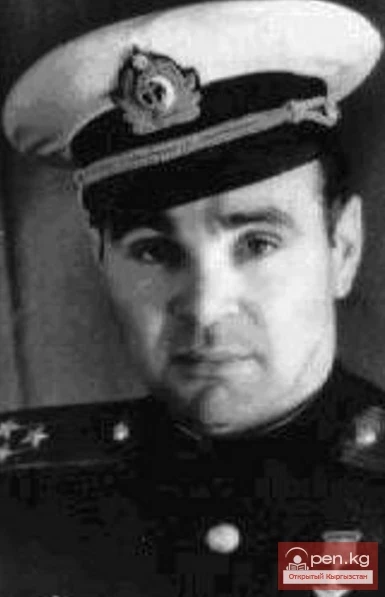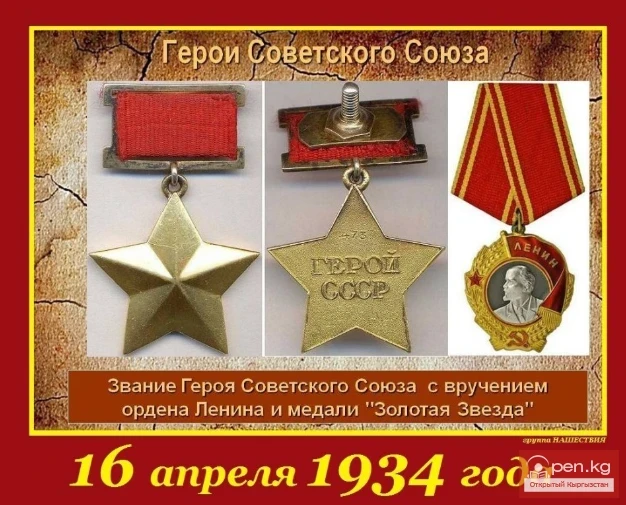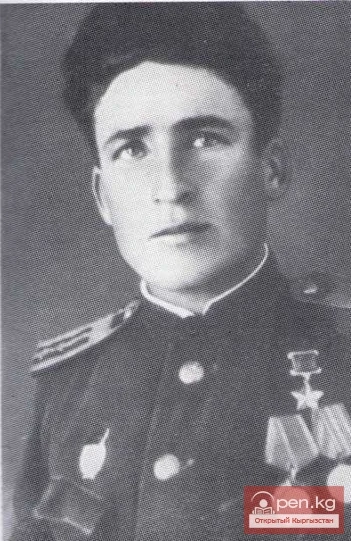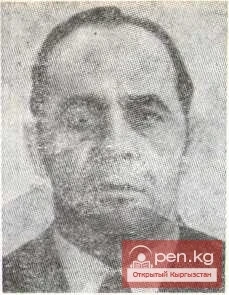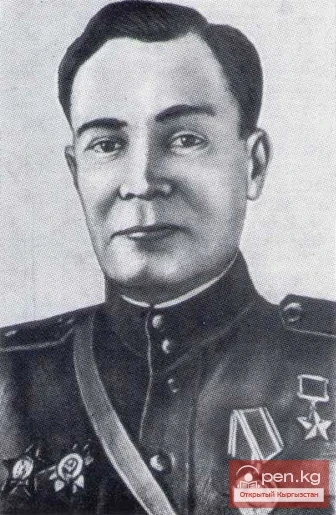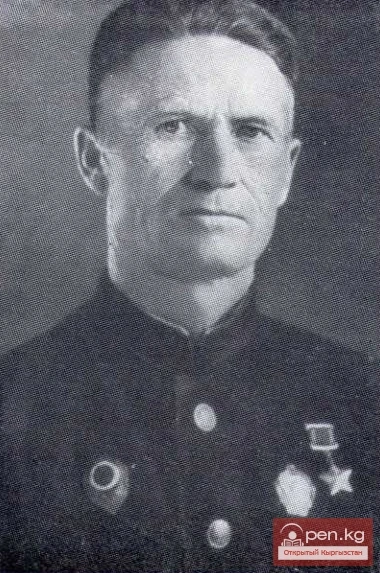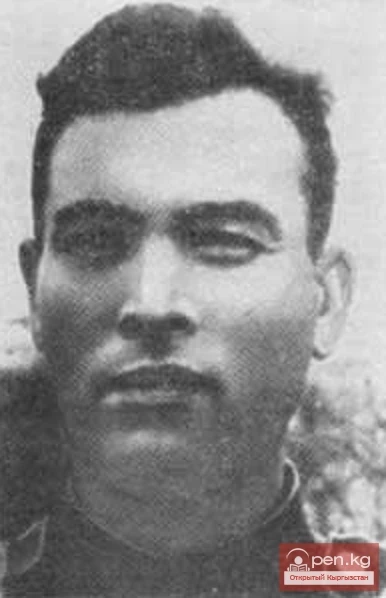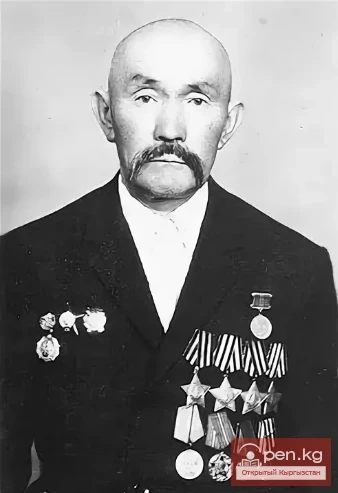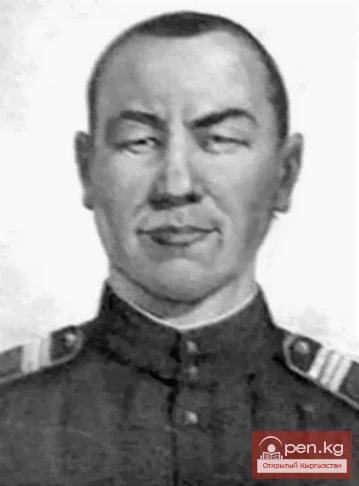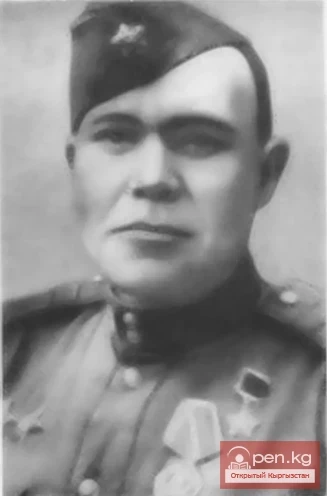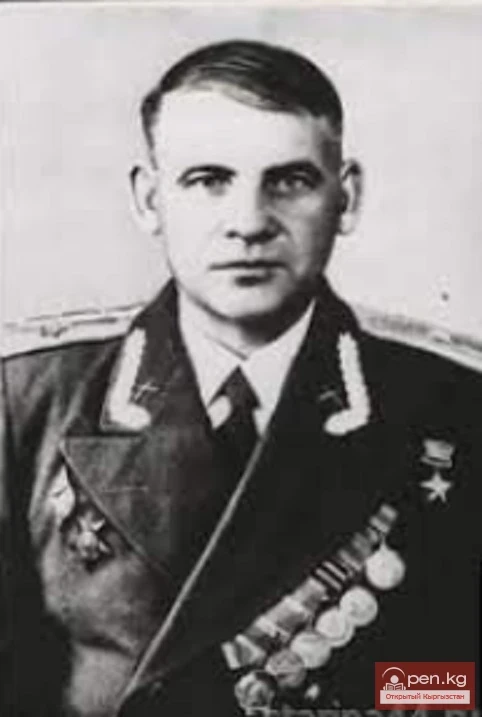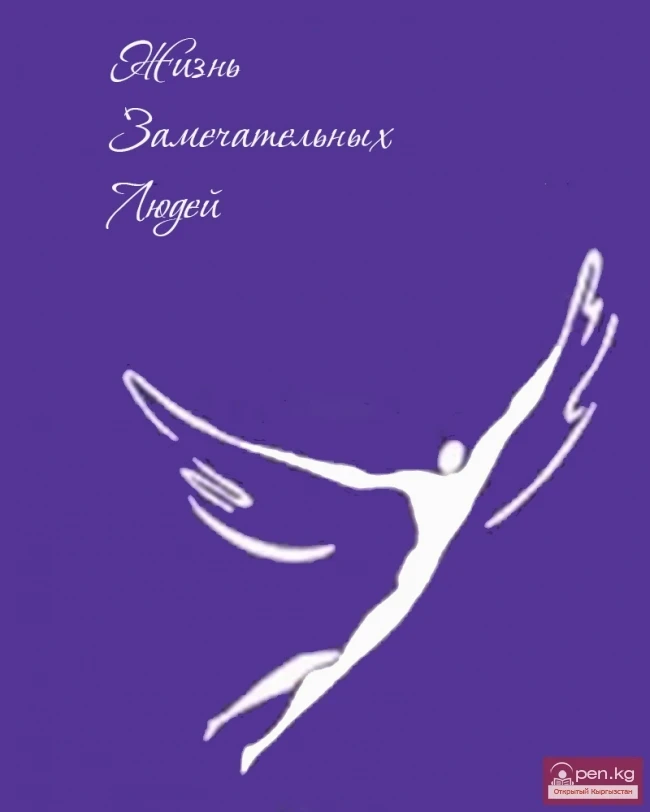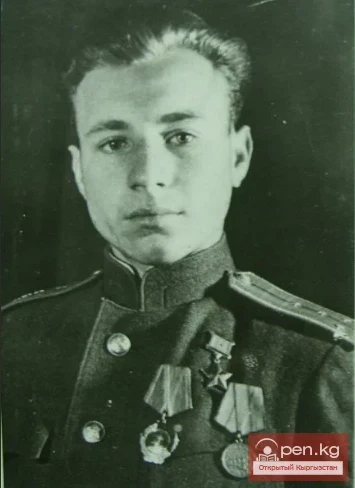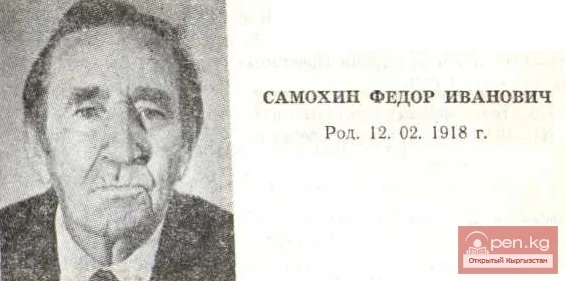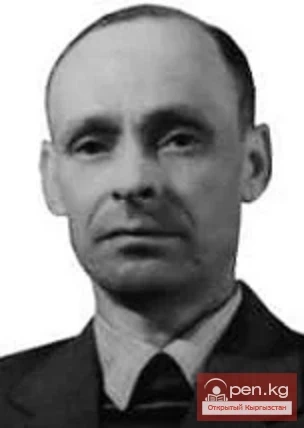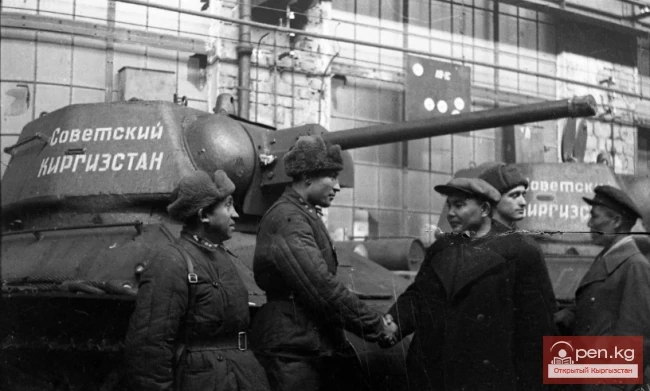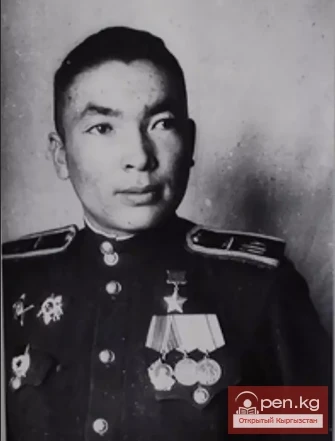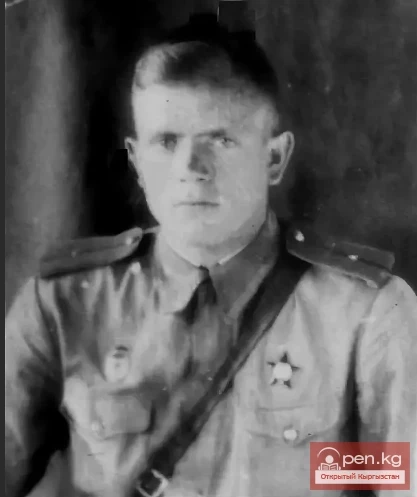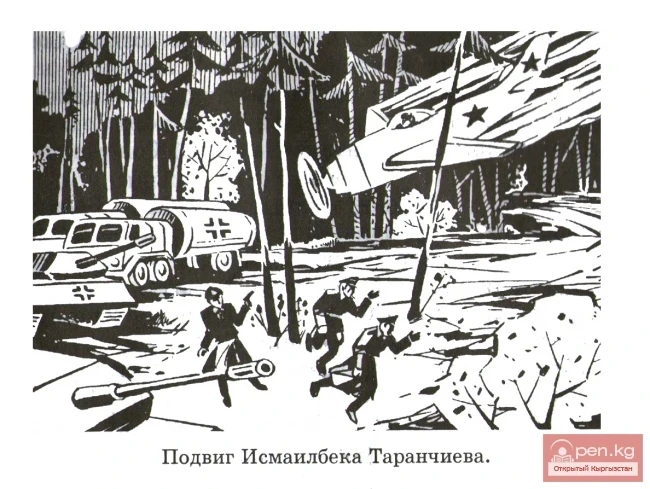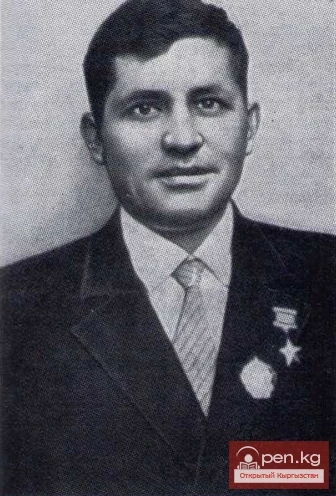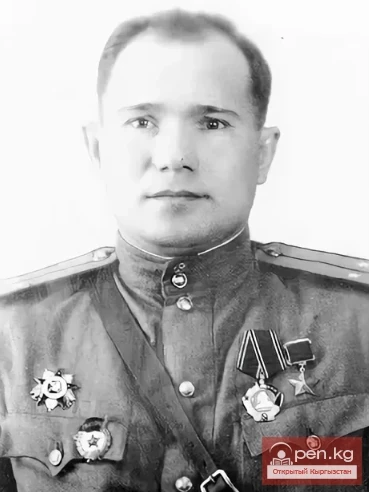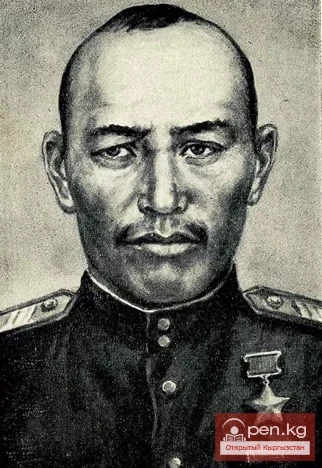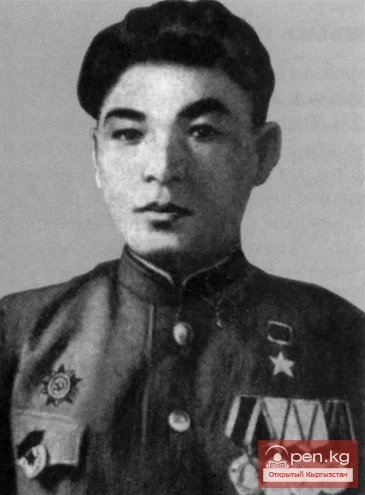
Hero of the Soviet Union Lutfullin Sulgi
Sulgi Lutfullin was born in 1923 in the city of Uzgen, Osh region of the Kyrgyz SSR. Uzbek. Member of the Communist Party of the Soviet Union. He was drafted into the Soviet Army in 1942. Commander of an anti-tank gun. Senior sergeant.
He fought his way from Kursk to Berlin as part of the Voronezh and 1st Ukrainian Fronts. He participated in the liberation of Kyiv, Berdichev, and in battles on the Vistula and Oder rivers.
On April 10, 1945, for his military feats, S. Lutfullin was awarded the title of Hero of the Soviet Union. His combat merits are also evidenced by the Order of the Patriotic War 1st class, and medals "For Courage," "For the Victory over Germany in the Great Patriotic War of 1941-1945."
After being demobilized from the Soviet Army, the Hero returned to his native Uzgen. He currently lives and works in the city of Andijan, Uzbek SSR.
HEROES ARE MADE
No one goes to war with the aim of necessarily becoming a hero. Moreover, heroes are not born. Heroes are made out of a sense of duty, a call from the Motherland, and from the heart. This is how we perceive the feat of a simple boy from Uzgen, Sulgi Lutfullin, who traveled a long front-line road spanning four years and was crowned with the "Golden Star" of a Hero.
Years will pass, but the further we move away from those fiery front-line days, the brighter and more impressive the feats of the soldiers of the Great Patriotic War seem. This is our tradition — to honor the feats accomplished in the name of our freedom and the happy future of our Motherland.
I remember, about fifteen years ago, I first encountered this broad, intelligent-eyed, handsome face on the pages of the book "Heroes of the Soviet Union." That meeting left me with a feeling of admiration for the difficult yet happy fate of the valiant warrior.
On that June day in 1941, Sulgi turned eighteen. A blooming time! So much could be accomplished.
To fall in love, publish his first book, get married, become a student, an innovator...
But when he returned, he was twenty-two.
Now, on the eve of the fortieth anniversary of Victory, Sulgi-aka is just as active, looking at us with wise, kind eyes, and it is hard to believe that once the shells from his anti-tank gun silenced, burned, and exploded the famed fascist "tigers" and "panthers," bunkers, and pillboxes. His combat successes, courage, and feats became the subject of poems and songs among the people. It was about those who "brought the Day of Victory closer in every way they could" that Ibrai Tumanov performed his famous "Melody of Victory."
As part of the 493rd Anti-Tank Artillery Regiment of the Reserve of the Supreme Command, Sulgi Lutfullin went through a glorious combat path.
...Summer of 1943. The 493rd regiment was assigned a serious combat task — to hold the village of Tamarovka, which had significant strategic importance for further offensive operations. The battery, which included Lutfullin's crew, received orders to block the enemy's advance to the settlement along the highway. Sergeant Lutfullin was then the gunner of a 76-mm anti-tank gun. On a dark night, the enemy launched a reconnaissance by fire, sending several "panther" tanks against the battery. Lutfullin's gun knocked out the lead tank. However, a shell explosion incapacitated the crew commander, Sergeant Melnikov, and loader Fedchenko. Gunner Lutfullin took on the duties of the crew commander, acting boldly and decisively. Within a few minutes, they managed to destroy a second tank, but the iron monsters continued to push forward, followed by waves of infantry. The roar of explosions shook the ground.
One by one, Lutfullin's comrades fell, but the gun kept firing. Together with fighter Lugovskikh, the crew commander turned it toward the approaching tank, shredding its armor with shells. Three more tanks were immobilized, and the others turned back.
In the morning twilight, the fascists renewed their attacks, trying by all means to break through to the village of Tamarovka. After the fourth attack, the artillerymen found themselves surrounded. Ammunition was running low, and communication with the regiment's headquarters was interrupted. Time and again, they had to grab their rifles to fend off the attacks of the advancing infantry.
The battery withstood the enemy's onslaught, defeated and pushed them back to their starting positions. The artillerymen did not falter, displaying resilience and courage, and did not allow the enemy to seize Tamarovka. In this battle, Sulgi Lutfullin destroyed ten tanks with his gun.
For the victorious battle near the village of Tamarovka, the artillerymen were awarded orders and medals. Four of them, including Sergeant Lutfullin, were awarded the title of Hero of the Soviet Union.
The third battery of the artillery regiment, now commanded by Lutfullin, consistently demonstrated examples of courage and bravery, resourcefulness. The command often set difficult tasks for the battery, but the artillerymen honorably accomplished them, delivering serious blows to enemy tanks, firing positions, and personnel.
In the spring of 1944, having overcome heavily fortified defensive lines of the Hitlerite troops in the Carpathians, the Red Army units, together with the Polish Army, began the liberation of Poland from the fascist invaders.
The war was rapidly rolling westward, back to where it all began. Our troops, liberating Poland, were rushing into the fascist lair to finish off the hated, bloodthirsty beast. The noose of just retribution was tightening around fascist Germany. In the summer of 1944, Red Army units captured a bridgehead on the western bank of the Vistula. On August 18, in the area of Sabutka-Shlyakhetska, the fascists launched a series of desperate counterattacks, trying to dislodge our troops from their positions.
The first counterattack began at dawn. In response, the legendary "Katyushas" unleashed a fiery barrage on the Germans.
Then the enemy resorted to trickery. Identifying where the "Katyushas" were not operating or where their fire was weaker, the fascists threw all their forces at these sections. Through incredible efforts, the enemy managed to cut off the battery, including Sulgi Lutfullin's gun, from the rest of the landing force that had secured itself on the western bank of the Vistula. The enemy's plan was clear: to destroy the anti-tank guns, clear the way for their tanks to advance, and break through to our infantry holding the defense on the captured bridgehead.
The artillerymen repelled more than one enemy counterattack. The soldiers were exhausted, while the fascists desperately pressed on their positions. However, they did not succeed. A lull set in. But it was short-lived. Now, 12 tanks with infantry were advancing against the brave artillerymen. The soldiers did not flinch. Lutfullin, calmly commanding the gun, set five fascist tanks ablaze with accurate fire.
Eight times that day, the Germans launched counterattacks, but each time the battery's guns boldly stood in their way. In this fierce and unequal battle, the artillerymen emerged victorious. The fascists could not withstand such resistance, leaving behind the dead, burning tanks, and retreating.
In the evening, the artillerymen broke through to their own. The most astonishing thing was that from such a fierce battle, Lutfullin's gun crew emerged almost unscathed, except for one wounded soldier.
January 1945: the famous advance to the Oder by the Red Army under difficult, adverse conditions. On the Western Front, the Germans launched a daring counteroffensive against the Anglo-American forces in the Ardennes and severely battered their forward units, sowing panic and fear. The situation was catastrophic. And then, true to their allied duty, the Soviet troops accelerated the large-scale Oder operation, forcing Hitler to transfer those very SS divisions that were sowing death and panic among the Anglo-American forces to the Eastern Front.
Lutfullin's artillery unit was among the first to cross the Oder on that frosty January day. In the battles for the settlement of Noydorf, the artillerymen destroyed three tanks, two armored personnel carriers, and many enemy soldiers, thereby contributing to the success of the operation.
On the approaches to the settlement of Herzogswalde on the western bank of the Oder, on January 30, 1945, Senior Sergeant S. Lutfullin performed an unprecedented feat. The Germans had turned this village into a strong fortified point and desperately counterattacked our advancing units. The enemy directed 13 tanks at the artillery position.
A fierce artillery duel ensued between the tanks and the gun. Using a favorable position, Lutfullin's crew, in a short battle, accurately destroyed three tanks and over thirty fascist soldiers. The enemy, not hoping for success, turned back.
After a short pause, the fascists again launched a counterattack with six tanks and two armored personnel carriers, followed by infantry. Lutfullin's crew boldly engaged in battle with superior enemy forces.
Having fired all their shells and knocked out 2 tanks and an armored personnel carrier, the artillerymen took up defense in the trenches and met the attackers with anti-tank grenades. The crew blocked the tanks' path, forcing them to retreat.
The long-awaited May of '45 arrived. How many soldiers, Soviet people did not live to see this happy and desired Day of Victory! Sulgi Lutfullin had waited four years for this moment. And now he came into the enemy's lair on behalf of all the fallen soldiers, on behalf of all the Soviet people tortured by the Germans, to finally put an end to the fascist beast, to fully account for our suffering, for the burned villages and towns.
As he walked through the streets of Berlin, his chest gleamed with military awards received for heroism and courage, for the Victory over the most vile enemy of humanity — the "Golden Star" of the Hero of the Soviet Union, the Orders of Lenin, the Patriotic War 1st class, and many combat medals. The soldier fought gloriously, served the Motherland faithfully!
Today, the Hero lives in the city of Andijan, Uzbek SSR. He works as a warehouse manager at the textile trade base. For his achievements in labor, he has been repeatedly recognized by the administration and enjoys deserved authority among his colleagues. The veteran does not grow old in spirit. A communist with forty years of experience, Sulgi Lutfullin still contributes to the upbringing of the younger generation.
S. CHERIKOV
